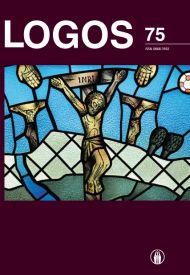Tomas Akvinietis Apie Universalijas Ir Esse
Thomas Aquinas on Universals and Esse
Author(s): Dalia Marija StančienėSubject(s): Metaphysics, Philosophy of Middle Ages
Published by: Visuomeninė organizacija »LOGOS«
Keywords: Thomas Aquinas; universals; existence (esse); metaphysics; epistemology; anthropology;
Summary/Abstract: The article analyzes the thomistic concepts of universals and existence (esse). In the Middle Ages, the question of universals was one of the most relevant problems of scholasticism. Theologians and philosophers debated over cognition of eternal forms and their existence in human understanding. They used asking: did universals exist in reality or in the intellect alone. Aquinas treated universals in three ways: as forms abstracted from matter, as forms in the divine intellect, and as forms which are the essences of intellectual substances. He was convinced that human cognition is grounded on sense perceptions and imagination without which the cognition is not possible: no body – no cognition. This attitude of the Angelic Doctor was very important for the development of philosophical anthropology. He claimed that being and essence are the first things to be conceived by our understanding, that being (ens) is understood through substantial forms thanks to which all beings have existence (esse). Existence was one of the most important parts of Aquinas’s metaphysics used in explanation of general development of the material world, nature of universals and modes of their existence.
Journal: LOGOS - A Journal of Religion, Philosophy, Comparative Cultural Studies and Art
- Issue Year: 2013
- Issue No: 75
- Page Range: 60-69
- Page Count: 10
- Language: Lithuanian

